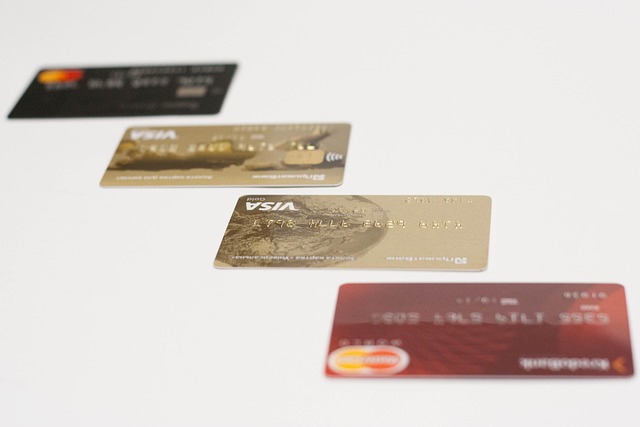Credit Cards – A Flexible Tool for Everyday Spending
Credit cards have become a widely used financial tool, offering convenience, security, and flexibility in managing day-to-day expenses. With a variety of card types and features available, they can help individuals track spending, access short-term credit, and organize their finances more effectively.

How do credit cards facilitate both online and in-store purchases?
Credit cards have revolutionized the way we make purchases, offering unparalleled convenience for both online and in-store transactions. In physical stores, credit cards allow for quick and easy payments, often with the added benefit of contactless technology for smaller purchases. This eliminates the need to carry large amounts of cash, reducing the risk of theft or loss. For online shopping, credit cards are widely accepted and provide a secure method of payment, with many cards offering additional protection against fraud or unauthorized transactions. The ability to use a single card for various types of purchases, whether in person or on the internet, streamlines the shopping experience and makes credit cards an indispensable tool for modern consumers.
How do credit cards help organize monthly expenses?
One of the most significant advantages of using credit cards is their ability to help users organize and track their monthly expenses. Most credit card providers offer detailed monthly statements that categorize spending, making it easier for cardholders to understand where their money is going. Many also provide online platforms or mobile apps that allow real-time tracking of purchases and current balances. This level of transparency can be invaluable for budgeting purposes, helping individuals identify areas where they may be overspending and make necessary adjustments. By consolidating various expenses onto a single card, users can gain a comprehensive overview of their monthly outgoings, simplifying financial management and supporting more informed decision-making.
What are the benefits of short-term credit access with clear repayment terms?
Credit cards offer users access to short-term credit, providing financial flexibility when needed. This can be particularly useful for managing unexpected expenses or taking advantage of time-sensitive opportunities. Unlike some other forms of borrowing, credit cards typically come with clear repayment terms, including minimum payment requirements and interest rates. This transparency allows users to make informed decisions about their borrowing and plan their repayments effectively. Many cards also offer interest-free periods on purchases, giving cardholders the opportunity to spread the cost of larger expenses over time without incurring additional charges, provided they repay the full amount within the specified timeframe.
How widespread is credit card acceptance among merchants?
Credit cards are accepted by millions of merchants worldwide, making them one of the most versatile payment methods available. From small local businesses to large international corporations, credit cards are widely recognized and accepted across various industries. This global acceptance means that cardholders can use their credit cards for a vast array of purchases, from everyday items to travel expenses, without the need to carry multiple currencies or large sums of cash. The widespread acceptance of credit cards also extends to online platforms, enabling seamless e-commerce transactions and supporting the growth of digital marketplaces.
How can credit cards support responsible financial planning?
When used mindfully, credit cards can be a powerful tool for responsible financial planning. By providing a clear record of spending, credit cards allow users to analyze their financial habits and make informed decisions about their budget. Many credit card providers offer rewards programs, cashback offers, or travel points, which, when used strategically, can provide additional value on everyday purchases. Some cards also come with built-in features such as purchase protection or travel insurance, potentially saving cardholders money on separate insurance policies. However, it’s crucial to remember that responsible use is key to leveraging these benefits effectively. This includes paying off balances in full each month when possible, avoiding unnecessary debt, and understanding the terms and conditions associated with the card.
What are some popular credit card options and their features?
Credit cards come in various types, each offering different features and benefits to suit different financial needs and lifestyles. Here’s a comparison of some popular credit card options:
| Card Type | Provider | Key Features | Cost Estimation |
|---|---|---|---|
| Cashback | American Express | 5% cashback on select categories, 1% on all other purchases | £0 annual fee |
| Travel Rewards | Barclaycard | Earn air miles on purchases, travel insurance included | £195 annual fee |
| Balance Transfer | HSBC | 0% interest on balance transfers for 24 months | 3% balance transfer fee |
| Low Interest | Santander | Low APR for purchases and cash advances | £3 monthly fee |
| Student | NatWest | No annual fee, cashback on textbook purchases | 19.9% APR variable |
Prices, rates, or cost estimates mentioned in this article are based on the latest available information but may change over time. Independent research is advised before making financial decisions.
In conclusion, credit cards offer a flexible and convenient tool for managing everyday spending. From facilitating both online and in-store purchases to helping organize monthly expenses, credit cards provide numerous benefits when used responsibly. Their widespread acceptance and the ability to access short-term credit make them a valuable financial instrument for many consumers. By understanding the features and potential benefits of different credit card options, individuals can choose a card that best suits their needs and supports their financial goals. However, it’s essential to approach credit card use with mindfulness and a clear understanding of the associated terms and responsibilities to maximize their benefits while maintaining financial health.




